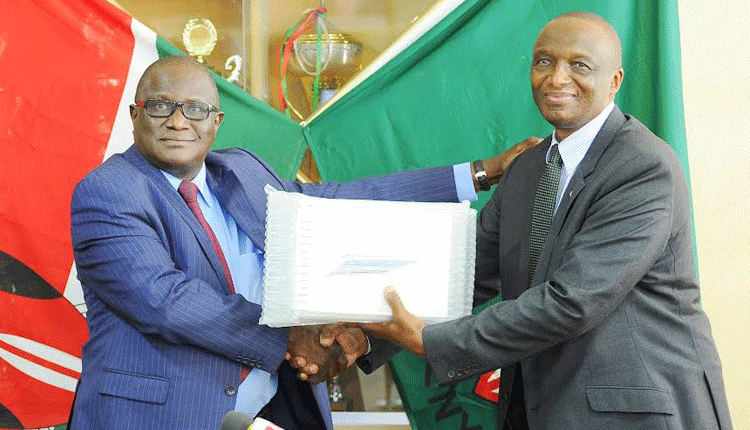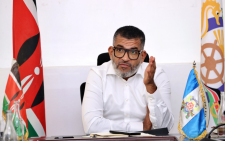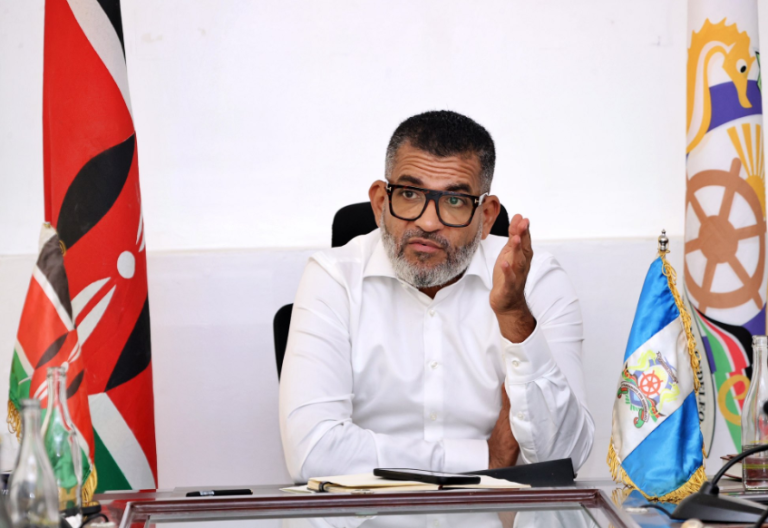MKU partners with state, organisations to boost learning in Kenyan prisons

Mount Kenya University (MKU) has distributed tablets fed with offline content to aid learning of inmates at Naivasha Maximum Security Prison as part of an ongoing partnership between the university and the Prisons Department.
The project is part of a study to determine ‘Effectiveness of Offline Study Desk on Prison Education.’
It is implemented through MKU, the National Research Fund, Kenya Prisons Service and the Kenya National Commission for the United Nations Educational, Scientific and Cultural Organisation (Unesco). The National Research Fund is the sponsor of the project.
Speaking at the Prisons Headquarters in Nairobi earlier this week, MKU Vice Chancellor Deogratius Jaganyi said the project seeks to empower convicts.
It also aims to give them skills that will be useful to them once they reintegrate with the community after serving their sentence.
“In this way, by the time they get back to their communities, the inmates will be more empowered and the chances of relapsing into crime will be reduced,” the VC said.
Prof Jaganyi said the tablets handed over contain interactive Science, Technology, Engineering and Mathematics (STEM) subjects material and science virtual labs for use in training inmates in six maximum prisons in Kenya.
In addition, the tablets will be used for an offline teaching where the inmate-students will access learning materials in an Internet-free environment technology.
“This is a fast and revolutionary use of ICT in prison education. The project uses education to reduce recidivism (the tendency of a convicted criminal to reoffend) and empower the inmates,” he added.
The research project will be carried out in the six maximum prisons in Kenya namely: Naivasha, Nyeri, Langata Women, Kisumu, Kamiti and Shimo la Tewa Maximum Prisons.
It targets to evaluate the effectiveness of ICT in delivery of prison education without the use of the Internet.
The correctional facilities in Kenya use education as a rehabilitation tool, but do not have trained teachers to handle inmate learner; they use the untrained inmates to teach their fellow inmates.
The inmates may not be permitted to access the internet as this may pose a threat to security. The development of the current solution was borne out of a number of challenges.
This includes inadequate learning resources in the prison, lack of qualified faculty to teach (except the few prison education officers who manage the education programme) and coupled with the fact that access to the internet is not permitted in the prison for obvious security reasons.
The prison project is one of the Corporate Social Responsibility activity areas of the MKU’s School of Education where, for the last two years, faculty from the school have been inducting inmates who act as teachers to fellow inmates on the capacity to plan, initiate, lead and develop education and teaching skills.
In the prison facility, there are inmates who are at primary school level, secondary school level and those who have completed secondary school education.
The CSR by the school of Education aims at equipping inmate teachers with skills on how to be better teachers.
In addition, faculty from the school of Education forgoes part of their lunch and donates education materials to teacher inmates and inmate students at various educational levels.











